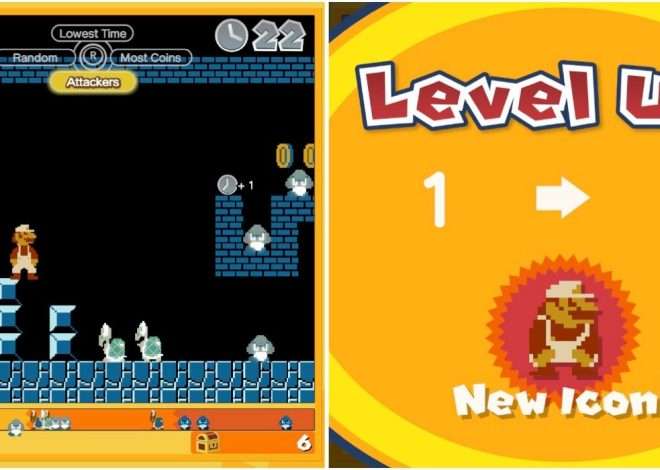The Unexpected Reflection
We often seek solace and escape in video games, immersing ourselves in fantastical realms and engaging in thrilling adventures. But what if these digital worlds served a purpose beyond entertainment? What if they acted as mirrors, reflecting our own struggles and offering unique opportunities for self-discovery and personal growth? My own experience revealed the surprising power of video games to illuminate hidden aspects of ourselves, forcing a confrontation with long-avoided problems. It’s a journey of self-reflection that started with a simple game and culminated in a profound understanding of my own inner landscape.
It began innocently enough; I was engrossed in a new role-playing game, a sprawling fantasy epic with a captivating storyline and richly detailed characters. Initially, I was simply enjoying the escapism, the thrill of battling monsters and solving complex puzzles. However, as I progressed, I started to notice something unsettling. My in-game avatar, a skilled warrior with a sharp wit and unwavering determination, mirrored certain aspects of my own personality. But it also highlighted traits I had carefully suppressed, aspects of myself I preferred to ignore.
The game, in its intricate design, presented challenges that directly resonated with my real-life struggles. My avatar faced moral dilemmas, challenging decisions that forced me to confront difficult choices. These in-game conflicts mirrored my own internal battles, illuminating patterns of behavior I hadn’t previously recognized. The more I played, the more I realized that the game wasn’t just a distraction; it was a reflection, a digital mirror showing me a clearer picture of myself.
Unmasking Hidden Patterns
One particular storyline in the game involved a complex relationship between my avatar and another character. The dynamic between them was fraught with tension, mirroring a difficult relationship I had in my own life. The game forced me to confront the patterns of behavior that had contributed to the conflict, prompting me to examine my own role in the situation. I began to recognize my own shortcomings, my tendency to avoid difficult conversations and my reluctance to express my true feelings.
This realization was uncomfortable, even painful. But it was also incredibly liberating. By observing my avatar’s actions and the consequences of those actions within the game’s narrative, I began to understand my own flaws and the impact they had on my relationships. It was as if the game provided a safe space for me to explore these difficult emotions and behaviors without the immediate consequences of real-life interactions.
The Power of Digital Metaphors
The experience highlighted the power of video games to act as metaphorical tools for self-discovery. The game’s narrative, characters, and challenges provided a framework for understanding my own internal struggles. It wasn’t simply about mimicking real-life situations; it was about using the game’s structure to explore complex emotions and patterns of behavior in a safe and controlled environment.
The immersive nature of video games allows for a level of emotional engagement that’s often absent in other forms of self-reflection. The emotional investment in the game’s story and characters can translate into a deeper understanding of the player’s own motivations and emotional responses. This emotional connection enables a more profound level of self-awareness, making the process of self-discovery more impactful and meaningful.
Learning from Digital Failures
Moreover, video games offer a unique opportunity to learn from “failures” without real-world consequences. In the game, my avatar faced numerous setbacks and defeats. These failures, however, didn’t have the same devastating impact as real-life mistakes. They served as valuable learning experiences, allowing me to experiment with different strategies and approaches without fear of significant repercussions. This ability to learn from mistakes in a low-stakes environment is invaluable for personal growth.
This process of trial and error, of learning from virtual failures, allowed me to develop new coping mechanisms and strategies for dealing with similar challenges in my own life. The game became a training ground for real-world problems, helping me to develop resilience and adaptability in the face of adversity.
Beyond Entertainment: The Therapeutic Potential of Games
My experience is not an isolated incident. Many people have discovered the therapeutic potential of video games, using them as tools for self-reflection, emotional processing, and personal growth. The immersive and interactive nature of games provides a unique opportunity to engage with difficult emotions and challenging situations in a safe and controlled setting.
The ability to control the narrative, to make choices and see their consequences, empowers players to take ownership of their own experiences and learn from their mistakes. This sense of agency and control can be particularly beneficial for individuals struggling with anxiety, depression, or other mental health challenges.
A Growing Field of Study
The therapeutic potential of video games is a growing field of study, with researchers exploring the use of games to address a range of mental health issues. From rehabilitation programs to stress management techniques, the applications are wide-ranging and constantly evolving. The unique combination of narrative, interaction, and immersion makes video games a powerful tool for therapeutic intervention.
As technology continues to advance, we can expect to see even more innovative uses of video games in therapeutic settings. The potential for personalized gaming experiences tailored to individual needs and preferences is vast, offering the possibility of highly effective and engaging interventions.
The Unexpected Journey
My journey of self-discovery through video games was entirely unexpected. I began playing for entertainment, but I ended up confronting deep-seated personal challenges. The game served as a mirror, reflecting my own strengths and weaknesses, allowing me to confront issues I had long avoided. It was a journey of self-reflection, a process of uncovering hidden aspects of myself and developing a deeper understanding of my own behaviors and motivations.
The experience highlighted the potential of video games to extend beyond entertainment and into the realm of personal growth and self-improvement. It’s a powerful reminder that even the most seemingly simple activities can lead to profound and unexpected insights into ourselves and the world around us. The process of self-discovery is rarely straightforward; it’s often messy, uncomfortable, and requires a willingness to confront difficult truths. But the rewards of self-awareness and personal growth are immeasurable.
The next time you pick up a controller, remember the potential for more than just entertainment. Consider the possibility of using video games as a tool for self-reflection, a mirror to reveal your hidden strengths and weaknesses, and a path towards a deeper understanding of yourself.
The journey continues, with each game offering new opportunities for self-discovery and personal growth. The power of introspection is undeniable; the mirror of the game world revealed much more than I initially anticipated. It sparked a personal evolution, a continuous process of learning and self-improvement, driven by the unexpected insights gained from an unlikely source. The experience transformed not just how I approached challenges within games, but also how I navigate the complexities of life itself.
- Increased self-awareness
- Improved coping mechanisms
- Enhanced emotional regulation
- Greater self-acceptance
- Stronger resilience
- Improved problem-solving skills
- Increased empathy
- Better understanding of personal relationships
- Enhanced communication skills
- Greater self-confidence



